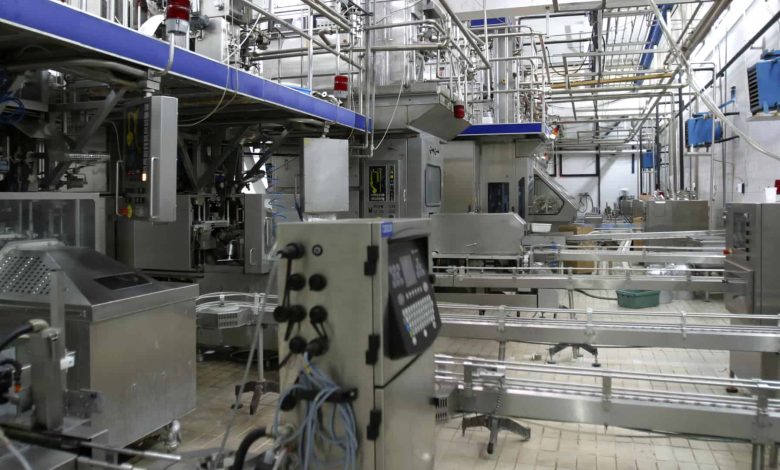
Introduction
In the bustling world of commercial kitchens and large-scale food production. the right equipment is essential to ensure efficiency, quality, and safety. Three pivotal pieces of equipment that stand out in these environments are the industrial oven, industrial ice maker, and professional dishwasher. These appliances are designed to handle the high demands of industrial usage. providing reliable performance day in and day out. In this article, we will explore the unique features, benefits. and considerations of each of these industrial appliances.
The Industrial Oven: Heart of the Kitchen
Types of Industrial Ovens
Industrial ovens come in various types, each designed to meet specific needs. The most common types include:
- Convection Ovens:
These ovens use fans to circulate hot air, ensuring even cooking and baking. They are ideal for baking bread, pastries, and roasting meats.
- Deck Ovens:
Often used in bakeries, these ovens have stone or metal decks that provide direct heat to the food. creating a crisp crust on baked goods.
- Rotary Ovens:
Equipped with rotating racks. these ovens ensure uniform cooking and are perfect for large-scale baking operations.
- Tunnel Ovens:
These continuous ovens are used in production lines. where food items move through a heated tunnel on a conveyor belt.
Benefits of Using an Industrial Oven
The industrial oven is a powerhouse in any commercial kitchen, offering several benefits:
Efficiency:
Industrial ovens are designed to handle large quantities of food. reducing cooking times and increasing productivity.
Consistency:
Advanced temperature controls and even heat distribution ensure consistent cooking results. which is crucial for maintaining food quality.
Durability:
Built with robust materials. these ovens can withstand the rigors of continuous use in demanding environments.
Key Considerations
When choosing an industrial oven, consider the following factors:
Capacity:
Ensure the oven can handle the volume of food you need to prepare.
Energy Efficiency:
Look for ovens with energy-saving features to reduce operational costs.
Ease of Cleaning:
Ovens with removable racks and self-cleaning features can save time and labor.
The Industrial Ice Maker: Cooling at Scale
Types of Industrial Ice Makers
Industrial ice makers are essential for food preservation, beverage service. and even medical applications. The main types include:
- Cube Ice Makers:
Produce clear, hard ice cubes suitable for drinks and food displays.
- Flake Ice Makers:
Generate soft, moldable ice ideal for seafood displays, meat processing, and healthcare use.
- Nugget Ice Makers:
Create chewable, slow-melting ice nuggets, popular in the beverage industry.
Benefits of Using an Industrial Ice Maker
Industrial ice makers offer many advantages:
High Output:
These machines can produce large quantities of ice. meeting the demands of busy environments.
Reliability:
Designed for continuous operation, industrial ice makers ensure a consistent supply of ice.
Versatility:
Different types of ice makers cater to various needs. from drink service to food preservation and medical uses.
Key Considerations
When selecting an industrial ice maker, consider:
Production Capacity:
Choose a machine that can meet your peak ice demand.
Storage Capacity:
Ensure the ice maker has adequate storage for your needs or can be paired with a suitable ice bin.
Water and Energy Efficiency:
Opt for models that use water and energy to keep operating costs down.
The Professional Dishwasher: Hygiene and Efficiency
Types of Professional Dishwashers
Professional dishwashers are indispensable in any commercial kitchen. providing fast and hygienic cleaning solutions. The main types include:
- Undercounter Dishwashers:
Compact units ideal for small restaurants or cafes, offering quick cycle times.
- Door-Type Dishwashers:
These are larger, more powerful units suited for medium-sized kitchens. with a door that lifts to load and unload racks.
- Conveyor Dishwashers:
Designed for high-volume operations. these machines have a conveyor belt that moves racks of dishes through the washing process.
- Flight-Type Dishwashers:
The largest and most advanced, these dishwashers can handle continuous. large-scale dishwashing needs, often found in institutions and large hotels.
Benefits of Using a Professional Dishwasher
Professional dishwashers provide several key benefits:
Speed:
Capable of cleaning large volumes of dishes , reducing turnaround time.
Sanitation:
High-temperature wash cycles and advanced detergents ensure thorough cleaning and sanitization, meeting health standards.
Labor Savings:
Automated washing reduces the need for manual labor, freeing up staff for other tasks.
Key Considerations
When choosing a professional dishwasher, consider:
Capacity and Throughput:
Ensure the dishwasher can handle your peak dishwashing needs.
Energy and Water Efficiency:
Look for models with efficient water and energy use to cut operating costs.
Ease of Maintenance:
Select dishwashers with easy-to-clean filters and accessible components to simplify maintenance.
Conclusion
In the realm of industrial kitchens and large-scale food service operations. the industrial oven, industrial ice maker, and professional dishwasher are indispensable tools that ensure efficiency, consistency, and hygiene. Choosing the right equipment involves understanding the specific needs of your operation. and considering factors like capacity, efficiency, and ease of use. By investing in high-quality industrial appliances. businesses can enhance their productivity, maintain high standards of food quality and safety. and , achieve greater success in their culinary endeavors.